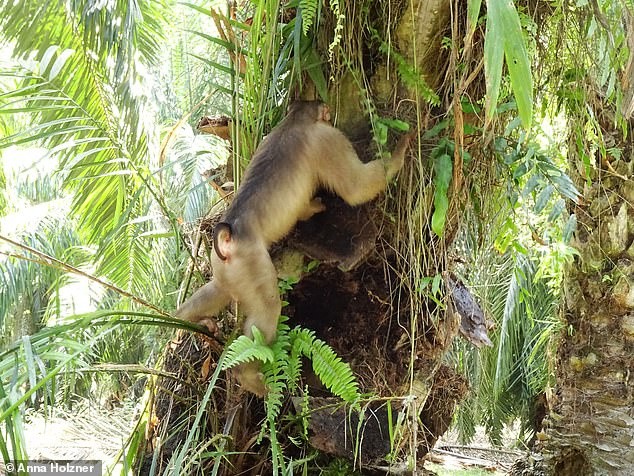
Monkeys that swarm on palm oil plantation in Malaysia were observed to be indulging in rats, according to the recent report published by Current Biology on October 21.
Nadine Ruppert, co-author of the study, said that she was stunned after witnessing pig-tailed macaques eating rats and seeing them consumed so much meat. The said species mainly consumed fruits, and birds and lizards in some instances.
Due to this bizarre behavior, palm oil producers might change their mind as this species can be utilized to enhance palm oil sustainability.
According to the report, the rat infestation costs the industry at least $930 million annually in Malaysia alone. Chemical rat poisons were not cost-efficient, as it is expensive and ineffective. It might be harmful to the ecosystem too.
Macaques are not pest...
The researchers observed two groups of macaques from January 2016 to September 2018 in the Segari Melintang Forest Reserve. While it is true that macaques consume lots of palm fruits, letting the rats run free can cause more damage. A group of macaques can consume at least 3,000 rats per year, and can reduce crop damage to less than three percent, which is around $650 million worth of gain annually.
So, macaques might not really be a pest on the industry.
The macaques are classified as "vulnerable" by the International Union for Conservation of Nature. The researchers expect that this recent discovery will encourage plantation owners and farmers to help in conserving the monkeys since it will be a win-win process, as both parties benefit.
Anja Widdig, the senior author affiliated with the University of Leipzig, said that the researchers are collaborating with NGOs and palm oil companies to creative sustainable plantation designs that will cater to the wildlife.
What is palm oil?
Palm oil is a vegetable oil from the fruit of oil palm trees. Although major producers came from Southeast Asia, oil palm trees are native from Africa but were brought to Southeast Asia as an ornamental tree crop about a hundred years ago.
Palm oil is edible and is often used as cooking oil in Southeast Asian countries but can also be found in cosmetics products and toilet utilities like soap and shampoo.
Although generally safe for consumption, European Food Safety Authority ruled in May 2016 that it is a "potential health concern" when processed improperly due to contaminants that can cause cancer and are genotoxic.
The industry of palm oil was criticized for being a major driver of rapid deforestation all over the world but especially in Malaysia and Indonesia. Endangered species like orangutans, pygmy elephants, and Sumatran rhinos were affected.
© 2025 NatureWorldNews.com All rights reserved. Do not reproduce without permission.





